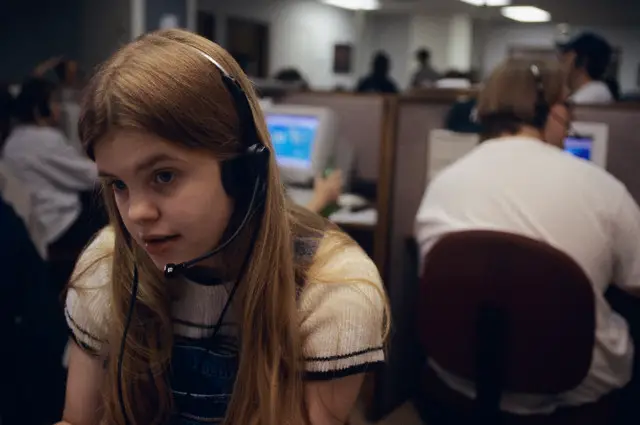Activity fairs are probably some of the more amusing college-sponsored events. Every September, a gym and/or quad is packed with students clamoring for attention for their club, sports team or charitable cause.
After naively wandering into this chaos my freshman year, I quickly became disbanded from my small group of new friends, transfixed by the swim team flaunting their sexuality and deafened by the dauntingly large speakers of “DJ Club.” People grabbed at my clothes, jumped in front of me before spilling their pitch and one girl even asked if I was Jewish (because apparently my dark hair, dark eyes and glasses don’t automatically qualify me for the Hillel Club). That night, I also got to play some mini-golf thanks to the golf team and learned what the term “equestrian” means thanks to, well, the “Equestrian Club.”
 Still, the occurrence of the night that would have the most impact on me involved a well-dressed upperclassman approaching me from behind and loudly advertising his art start-up in my ear. He had essentially cornered me between his body and the table of the “Feminist Collective” behind me, so there was no escaping.
Still, the occurrence of the night that would have the most impact on me involved a well-dressed upperclassman approaching me from behind and loudly advertising his art start-up in my ear. He had essentially cornered me between his body and the table of the “Feminist Collective” behind me, so there was no escaping.
I could have chosen never to see the guy again, but I was worried that I had under-booked myself for the year (it turned out that being willing to drink free wine every week at Shabbat was not a valid reason to join “Hillel”). I attended the meeting for the art start-up as described on the back of the pamphlet the upperclassman had handed me. Henry* even called me out during the meeting. “I’m really surprised that you came here,” he said, jerking a flannelled arm my way. “You looked like I had grown a second nose that night at the fair.”
Before long, I signed a lengthy contract and became a “sales clerk” at the start-up. The job involved calling people out of digital versions of address books and trying to convince them to set up meetings with art dealers in their vicinity who were affiliated with the company. I don’t recall hearing Henry use the term “telemarketer,” but I had clearly become one.
Before I soil my own reputation by admitting to my telemarketer-dom, there’s something you should know: I quit that job after three days. In those three days, I worked one shift and—because the art was sold by commission—I didn’t make any money.
I don’t usually consider myself the sort of person to do drugs or participate in dares, but this time peer pressure got to me in another way. Henry was persuasive, and throughout several “training sessions,” all of the other imminent sales clerks seemed completely on-board with some shifty business tactics.
Henry encouraged his sales clerks to use fake names when they called potential clients. The more Anglo-Saxon-sounding, the better. The call lists were compiled from the directories for a number of private high schools in affluent suburbs of New York, Los Angeles and Boston, and most of those schools banned the use of their directories for business inquiries.
In addition, Henry told me to pretend to be a graduate of the school whose directory I was using.
He also repeatedly mentioned that the so-called “grand prize”—a painting worth over $2,000,000—that would earn me over $40,000 in commission if I sold it. And earning a middle-class annual salary for a 90-second phone call sounded pretty good to me.
Although I had my motives, there was no doubt that working for this company was compromising my honesty. I didn’t want to lie about my name or upbringing. I avoided doing so for as long as possible by purposefully only calling people who lived near my hometown. But there weren’t enough numbers to make that strategy sustainable. Perhaps by a stroke of luck, one potential client asked how I got his number, citing that he was on a national no-call list and that neglecting those lists was a breach of federal telemarketing laws. I told him the truth about the school directories and he was appalled, demanding to speak to my boss.
After Henry sweet-talked his way out of getting the cops called on him, he hung up and started laughing. He had known what he was doing was illegal. I told him I couldn’t be a part of his scandalous operation anymore, and he was understanding. He had plenty of other minions to manipulate into committing crimes.
It was a wild three days emotionally. I started questioning my deep-seated sense of being in touch with myself. What drove me to stay in a situation that made me feel so uncomfortable for so long? Greed? Peer pressure? A quest for fulfillment beyond my intro-level courses and weekly cello lesson? Most likely a combination of the three.
I had ignored my own feelings in pursuit of superficial ideas of success, which bothered me a lot. I hoped I would never put myself in a position again where someone had to provoke me before I got in touch with my emotions. But I’ve found that a lot of people I know have the wrong attitude about a different emotion: boredom.
The jobs of teenagers and collegians often aren’t the most exciting in the world. But when I refer to “horrendous” jobs above, I don’t mean the unskilled labor or tedious customer service positions of plenty of people my age. Jobs you may find boring are good experience. They teach you to be patient and to interact with groups of people you may have avoided before (I’m now a cashier at a grocery store, and I swear the average age of my customers is 86).
A comfortable work environment, filled with people you can learn from and laugh along with, should be priority #1 when you look for a job. Not a sense of fulfillment or excitement. Not money. Nothing except the notion of diversifying your experiences should propel you forward, at least within the scope of the collegiate part-time jobholder.
I may not be the busiest person in the world. A lot of my hobbies are “selfish” instead of being fulfilling jobs or altruistic charitable pursuits. But I’d take idleness and boredom over dishonesty and discomfort any day. And it helped fill my schedule during freshman year when I found out that “Hillel Club” members are allowed to bring non-practicing guests to Shabbat.










